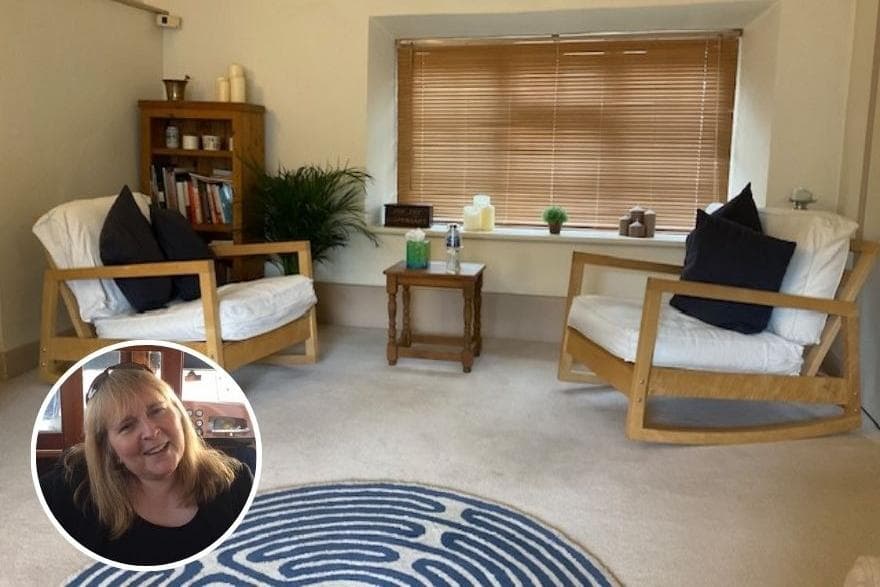Watch more of our videos on ShotsTV.com
and on Freeview 262 or Freely 565
Visit Shots! now
A private eating disorder practice has been praised for making people feel comfortable to discuss their issues, following the introduction of a new helpline service to tackle a rise in need.
The fully qualified nurse practitioner, with 43 years of experience, first worked at St Andrew’s Healthcare and has built on her knowledge ever since.
Sue currently sees patients for batches of short or long-term eating disorder treatment and although she runs a private practice, she remains passionate about being accessible in the current economic climate.

 Sue Wilson is proud to run her practice, Eating Disorder Consultancy Service, and it has become a well-renowned mental health resource for the community over the past 16 years.
Sue Wilson is proud to run her practice, Eating Disorder Consultancy Service, and it has become a well-renowned mental health resource for the community over the past 16 years.
That is why she launched a local telephone helpline service in June, aimed at guiding individuals to access the right help for them and their families – and to navigate the “increasingly complex” health systems in the NHS.
Sue can offer telephone advice prior to people’s GP appointments about how to access services, and what families are entitled to as part of the national guidelines.
Though Sue encourages people to pre-book their telephone appointments, a drop-in helpline on Thursdays from 4pm until 6pm has proved popular for people to ring for a short conversation. The focus is advisory and not treatment for specific cases.
Like all of Sue’s services, the telephone helpline is available to anyone aged 13 and over and two pathways are offered – ‘finding your way’ and ‘navigating help’.

 Sue launched a local telephone helpline service in June, aimed at guiding individuals to access the right help for them and their families.
Sue launched a local telephone helpline service in June, aimed at guiding individuals to access the right help for them and their families.
Talking to the Chronicle & Echo three months on from launching the service, Sue said: “The helpline averages four calls each Thursday, and general phone calls at other times have increased.”
Sue anticipated that she would hear from more adults getting in touch on behalf of children and young people, but is surprised to have been contacted mainly by over 18s seeking help themselves.
The nurse practitioner says she has helped signpost many people with disordered eating linked to other psychiatric conditions, such as depression, to the services they need – and this differs from an eating disorder diagnosis.
“People have liked the responsiveness and ability to speak to a specialist straight away,” said Sue. “It’s the ease of contact. When they come for an assessment, feedback about the environment is always good.
“They say it’s not like a hospital setting and they feel very comfortable. It makes them want to stay and talk.”
Sue plans to keep this helpline service going until the end of the year, as she shared there is typically a peak in referrals in September. This is particularly the case for those returning to school or university, when “structure puts everything into sharp focus”.
The festive period is also a challenging time, and Sue will offer extended helplines in the run up to Christmas and between Christmas and New Year.
The nurse practitioner also feels passionate about increasing support for carers, by upping the amount of face-to-face sessions to help those caring for someone with an eating disorder.
Anyone wanting to utilise the helpline should call or text 07444 283796. Sue can provide advice over text if that is more comfortable, and also encourages those seeking help to utilise national Beat services.
Continue Reading

